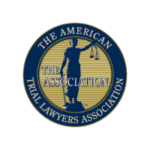FREE INITIAL CONSULTATION
Fraud and White Collar Defense Lawyer | Criminal Defense for Fraud & Theft Cases in Arizona | Board Certified Criminal Law Specialists
Below is only a sampling of our Victories and not a complete list. Click on any of the buttons to view the type of charge and individual case results.
If you are facing Fraud or White Collar Crime charges Arizona, you stand no chance of a favorable verdict without an expert criminal defense team on your side. Your criminal defense team needs to be “Beyond Aggressive” in your defense.
David Michael Cantor is a Criminal Defense Attorney and a Board Certified Criminal Law Specialist, per the Arizona Board of Legal Specialization. In addition, DM Cantor is AV® rated (the highest possible rating) by Martindale Hubbell®, and is listed in the Bar Register of Preeminent Lawyers®, Criminal Law Section.
When facing an allegation of Fraud, you cannot afford to have inadequate defense representation. We take great pride in knowing more than the prosecutors and police officers.
DM Cantor handles Fraud and White Collar Crime Cases in the Greater Phoenix area and throughout the State of Arizona.
Time is not on your side – you want David Cantor fighting for your freedom.
If you are charged with any criminal charges in Arizona Call DM Cantor at 602-536-5730 or Contact Us Today for a Free Consultation.
OUR HAPPY CLIENTS
What Our Clients Say
Fill out the form below to receive a free and confidential initial consultation.

Board Certified in Criminal Law *
State Bar of Arizona

10.0 Superb Rating
Avvo Criminal Defense

AV-Highest Rated Preeminent Lawyers
Martindale-Hubbell

Member
National College for DUI Defense

Life Member
National Association of
Criminal Defense Lawyers

Super Lawyer
Criminal & DUI Defense

Voted #1 (2020)
Ranking Arizona

Top 1% Attorney
National Association
of Distinguished Counsel

Top 10 DUI/DWI Law Firm
American Institute of
DUI / DWI Attorneys

Top 100 Trial Lawyers
(Criminal Defense)
American Trial Lawyers Association

Top 100 Lawyer
American Society
of Legal Advocates

Lifetime Member
Best Attorneys of America

Top 10 Attorney
National Academy of
Criminal Defense Attorneys

Client Satisfaction Award
American Institute
of DUI / DWI Attorneys

Member
DUI Defense Lawyers Association

Member
American Association for Justice

Member
American Bar Foundation

Charter Member
Trial Masters

Member
America’s Top 100
Criminal Defense Attorneys

Life Member
Arizona Attorneys for Criminal Justice

Sustaining Member
Arizona Trial Lawyers Association

2019 Litigator of the Year
(Criminal Law)
American Institute of Trial Lawyers

Member Since 1989
American Bar Association
Top Lawyer 2023
Phoenix Magazine

